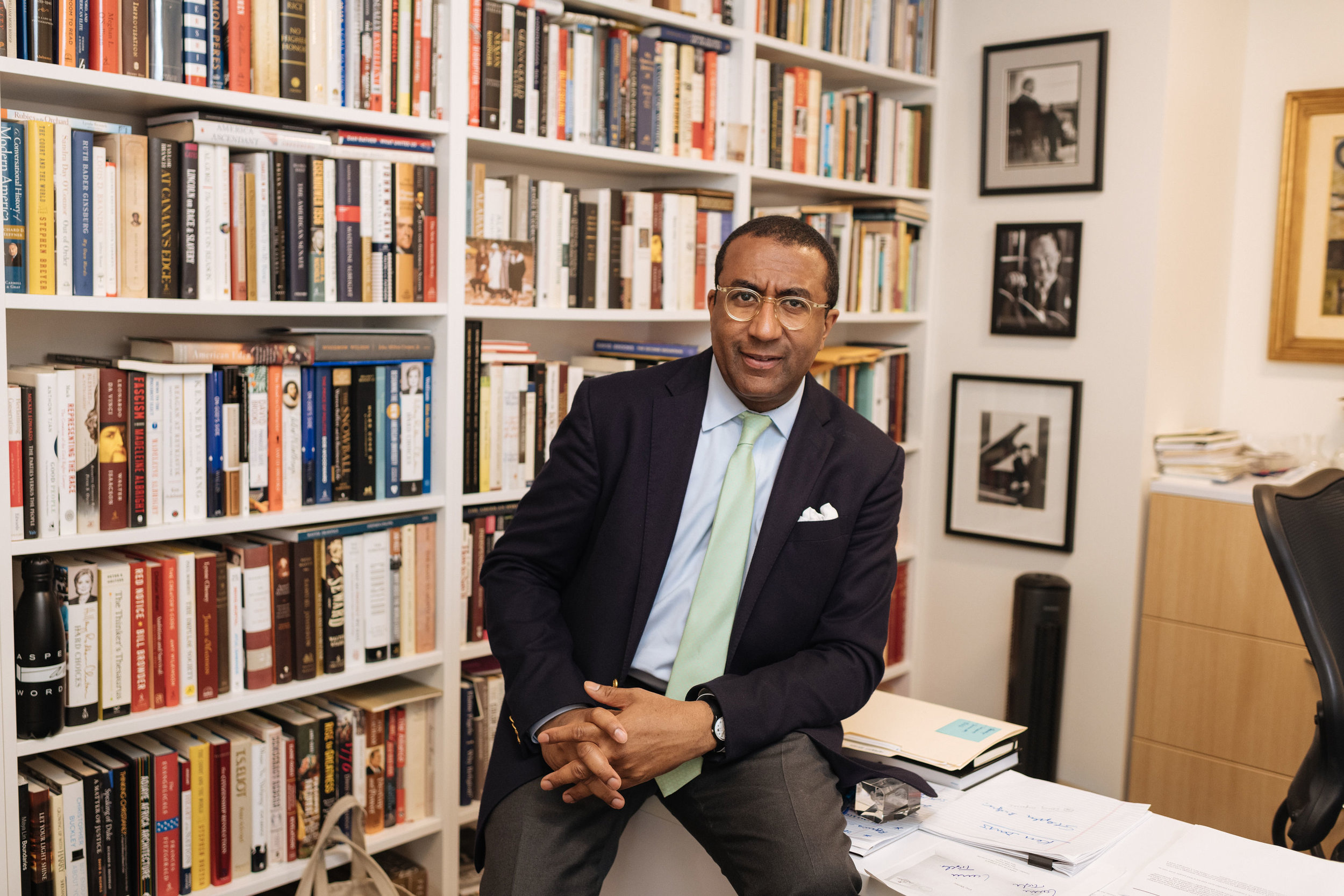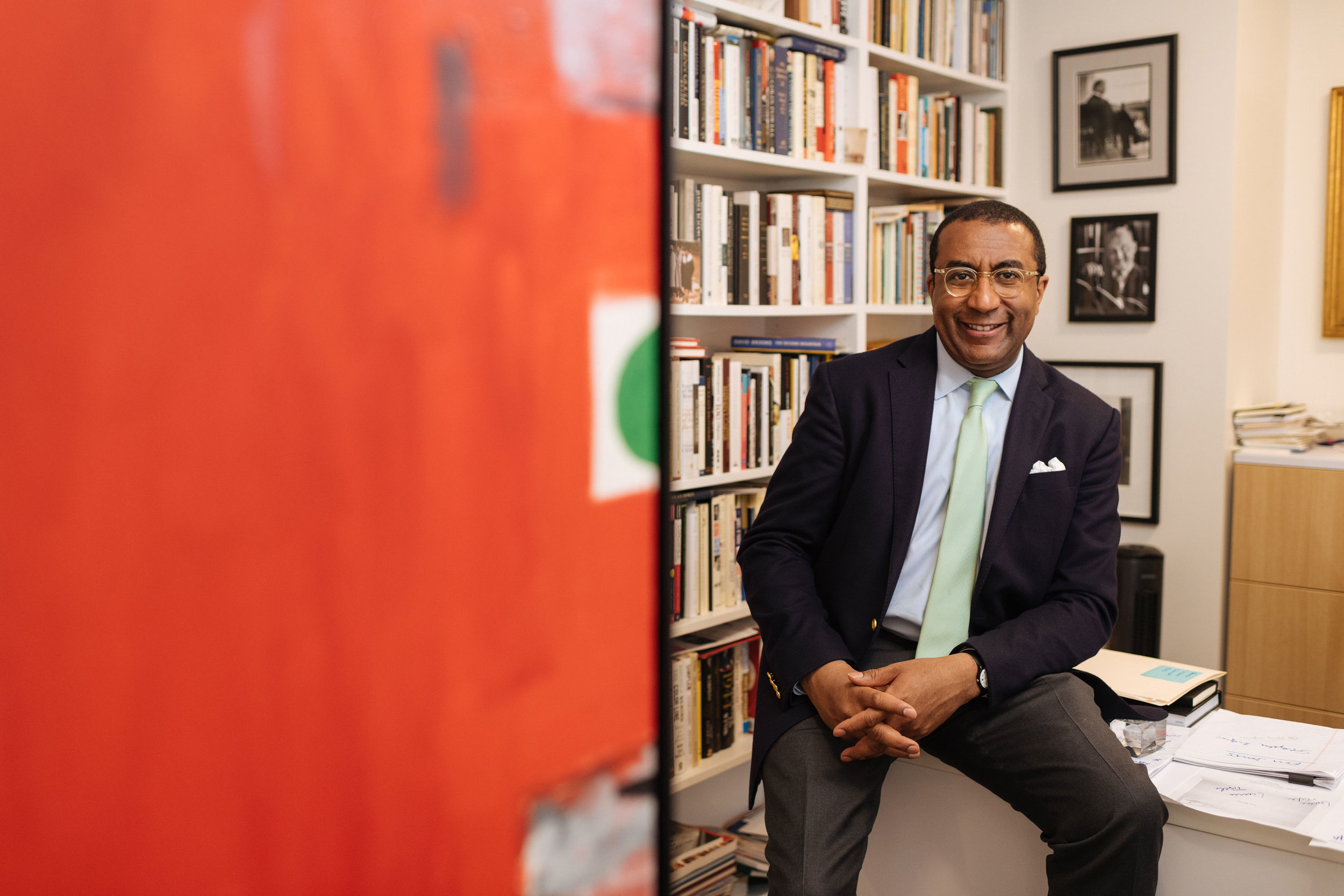‘I’m Always in Search of Community’
Nearly 140 years ago, on the edge of Montgomery, Alabama, a group of freed slaves bought a plantation and formed Madison Park—a community in search of life, liberty and the pursuit of happiness. Dr. Eric Motley’s great-great-grandfather was among them.
‘Newly emancipated with nothing but the clothes on their back, never having owned anything but having been owned their whole lives, this group of freed slaves pooled what little money they had to buy a plantation and create a community. They wanted to live into that promise of community, but also that promise of America—and they knew what was most important to their survival was creating a community. My personal journey is an outgrowth of that place and the people who nurtured me.’
Eight hundred miles away, that journey took Eric to Georgetown—a path ultimately guided by his own search for community.
Growing up in a house that sat on the same foundation his great-great-grandfather built, Eric was an intellectually curious child, but lacked resources—the Bible, a Sears and Roebucks catalogue, and a handful of encyclopedias the only books his family owned.
When Eric began struggling in first grade, a retired teacher started a personal library for him—the new collection displayed on a bedroom bookshelf his grandfather built. The gesture sparked a lifelong love of reading and learning.
‘Those books were treasures to me. They contained the knowledge of the universe and that was awe-inspiring. I remember the local minister had some beautiful theological texts with gold bindings. I marveled at the ornateness and thought maybe one day I could have a set of books like that.’
Armed with a newfound look at life beyond his rural community—if only through the page—Eric graduated from Samford University and left Alabama on a one-year scholarship to the University of St. Andrews in Scotland. He stayed another three, earning his PhD.
‘I had such a phenomenal intellectual experience and I discovered community yet again. I was studying with professors who changed my mind.’
So, too, did the university President—a rare book collector who took Eric under his wing and brought him to every bookstore in Edinburgh. By the time he left Scotland, Eric had amassed hundreds of books—selling the first cut of Grateful Dead and Bob Dylan albums to finance the shipping.
Back in the U.S., books in tow, Eric landed his first job with the George W. Bush administration.
‘There’s a wonderful line in Tennyson’s Ulysses poem that says, ‘To follow knowledge like a sinking star, to its outermost bounds…You’re from all that you’ve met, every entry is an entry into new experience that informs you.’ I wanted to experience something different than what I’d grown up with in Alabama.’
Eric knew only two people when he arrived, yet soon (and serendipitously) befriended Christina Pell Neal, granddaughter of the late Senator Claiborne Pell and his wife, Nuella. The iconic Democrats owned a Georgetown mansion where they entertained the likes of JFK and the Mondales, but spent the majority of their retirement in Rhode Island.
Christina knew Eric was desperate for garden space his nearby apartment couldn’t offer, and asked her grandparents if he could move into the vacant, 2,500-square-foot ground floor of their mansion. To his good fortune, they obliged.
‘They had a beautiful garden and gazebo in the back, and it was breathtakingly beautiful. I would go down the main corridor of the home and see all these great 17, 18th, and early 19th century French, Portuguese, and Dutch paintings and antiques, and I was in heaven. I got to know Mrs. Pell quite well when she was in town, and she’d invite me to dinner. Time with her was a history lesson on Georgetown, American culture, and polity and people. It was great.’
The Pells eventually sold their mansion but Eric has remained in Georgetown for more than 15 years--currently selling his condo and closing on his first house. The neighborhood is within walking distance to work, Christ Church, the Kennedy Center, and countless restaurants—but more importantly, has offered Eric that kinship he’s been after all along.
‘Having grown up in a small rural community, it’s very important to me to live in a place where you know people by name and you know a bit about their story, and you share some common interests. It’s critical for me, and Georgetown has provided that. I know 50 people who I can talk to on the street corner, whose homes I’m in and out of. I’ve found a community of people who are interested in the same things I am—from opera, to collecting drawings and rare books—and it’s been rewarding in a way that I did not anticipate. I did not anticipate the quickness of developing those most meaningful relationships that seem to sustain me.’
Now the Executive Vice President of Institutional Advancement and Corporate Secretary for The Aspen Institute and author of the memoir ‘Madison Park, A Place of Hope,’ Eric says he’s periodically presented with interesting opportunities elsewhere, but his heart remains in DC.
‘As important as place is, you carry place with you wherever you go—metaphorically. But it all comes down to people. Community is not the accumulation of the most important and well-ranked and well-credentialed people. Community, in the fullest and most beautiful sense to me, is captured in Martin Luther King Jr.’s own idea that we’re all a part of that inescapable network of mutuality. We’re tied in a single garment of destiny.’





